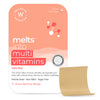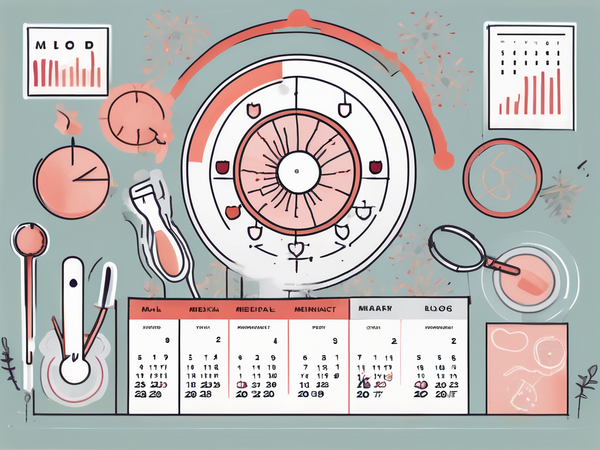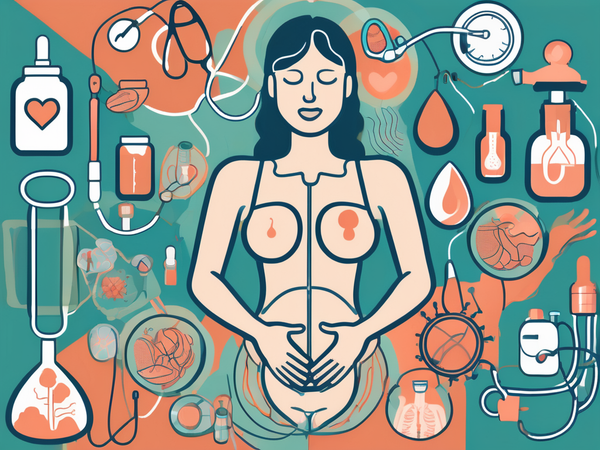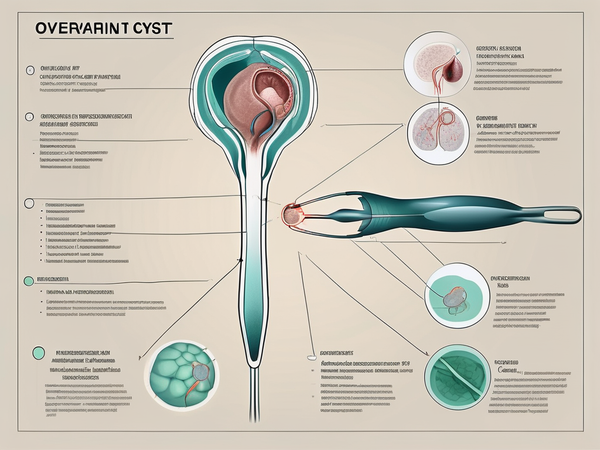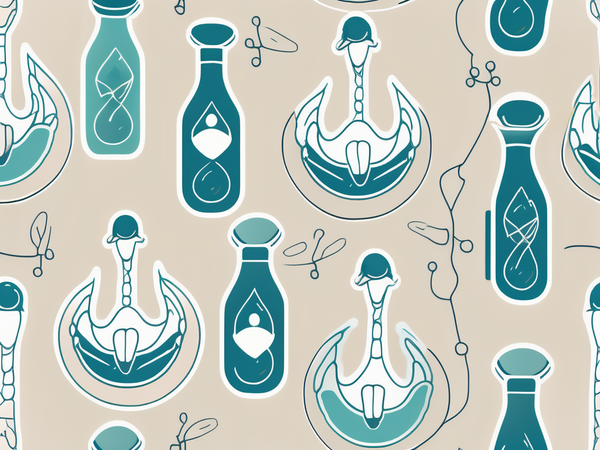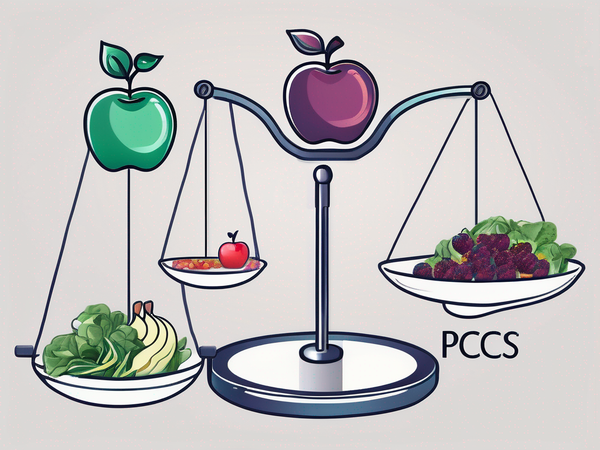Women nowadays, whether single or married, employed or stay-at-home mothers or not, struggle to satisfy their daily nutritional demands because of their hectic, fast-paced lifestyle.
In an age where women juggle multiple roles and face unique health challenges, ensuring optimal nutrition has become more crucial than ever. With fast-paced lifestyles and dietary limitations making it more difficult to maintain a balanced diet, multivitamin pills for women have become a useful way to fill nutritional gaps.
Key Nutrients for maintaining women's health
Women's health hinges significantly on specific nutrients that cater to their unique physiological needs. Some of the best vitamins for women in most stages of their lives have been listed below, along with important minerals, fatty acids, and antioxidants.
Iron: Iron for women stands out as a vital nutrient, especially during menstruation, as it helps to replenish the iron lost during menstrual cycles, preventing iron deficiency anemia.
Including iron-rich foods such as red meat, poultry, seafood, beans, dark leafy greens like spinach, iron-fortified cereals, and dried fruits such as figs, dates, and raisins can help in maintaining iron levels in women.
Calcium & Vitamin D: Calcium's role is equally paramount and crucial in bolstering bone health and warding off osteoporosis, a condition more prevalent in women, particularly post-menopause. Accompanying calcium, vitamin D is essential not only for its absorption but also for its benefits in immune function and, potentially, mood regulation.
Calcium-rich foods include dairy products like milk, cheese, and yogurt, along with leafy greens, almonds, and tofu, while vitamin D can be obtained from fatty fish, egg yolks, fortified milk, and cereals, as well as exposure to sunlight.
Vitamin B: Folic acid, a B vitamin, is of immense importance for women of childbearing age, reducing the risk of neural tube defects during pregnancy. The broader spectrum of B vitamins plays a key role in energy metabolism and nervous system maintenance.
Whole grains, meat, eggs, dairy products, leafy green vegetables, beans, peas, almonds, and fortified breads and cereals are just a few examples of foods high in vitamin B.
Omega 3: Omega-3 for women heart health has become increasingly important as women age, and it may also aid in alleviating menstrual discomfort.
Omega-3 fatty acids are abundantly found in fatty fish like salmon, mackerel, and sardines, as well as in flaxseeds, chia seeds, walnuts, and soybeans.
Vitamin C: Vitamin C is dual-purpose, boosting immune health and aiding in collagen production, which is vital for skin integrity. Vitamin C-rich foods include a variety of fruits and vegetables, such as oranges, strawberries, kiwi fruit, bell peppers, broccoli, kale, and Brussels sprouts.
Magnesium: Magnesium, often overlooked, offers benefits for muscle and nerve function and can be particularly helpful in managing premenstrual symptoms.
Magnesium-rich foods include dark leafy greens, nuts and seeds, whole grains, beans and lentils, avocados, and dark chocolate.
Antioxidants: Antioxidants like vitamins E and A are crucial for protecting cells from oxidative damage and supporting skin and eye health. Omega-3 fatty acids are plentiful in fatty fish like salmon, mackerel, and sardines, as well as in flaxseeds, chia seeds, walnuts, and soybeans.
Most common causes of Nutritional Deficiency in women
Nutritional deficiencies in women commonly stem from several key factors. A major cause is an imbalanced diet, often lacking in diversity and essential nutrients, particularly in cases of restrictive diets for weight loss or due to allergies and intolerances. Women's unique physiological needs, such as increased iron demand during menstruation and heightened nutrient requirements during pregnancy and lactation, also contribute significantly to deficiencies. Lifestyle factors like high stress, smoking, and excessive alcohol consumption can impair nutrient absorption and utilization. Moreover, as women age, changes in metabolic rates and digestive efficiencies can further exacerbate nutritional gaps, underscoring the importance of tailored dietary approaches throughout different life stages.
Role of supplements in women's health
In cases where dietary intake is insufficient, multivitamin tablets for women or multivitamin capsules for women can play a crucial role in bridging nutritional gaps. For instance, women who follow vegetarian or vegan diets might be at risk of certain deficiencies, such as vitamin B12, omega-3, or iron, and would particularly benefit from targeted supplementation such as iron supplements and omega-3 supplements, etc.
Women's bodies have specific nutritional needs that change with each stage of life, from menstruation to pregnancy and then menopause. Multivitamins tailored for women help meet these changing demands. They are a fusion of various vitamins and minerals designed to supplement a woman's diet and ensure a better overall health profile.
The Advantages of Multivitamin Supplements in Everyday Life
Incorporating a multivitamin capsule for women into daily routines can offer several tangible benefits:
Filling Nutritional Gaps: Even with a well-balanced diet, some women may still experience nutritional deficiencies due to various factors like dietary restrictions or increased nutritional needs. Multivitamins can fill these gaps, ensuring that all micronutrient needs are met.
Enhancing Energy Levels: B vitamins in multivitamins play a crucial role in energy production. Regular intake can help in maintaining consistent energy levels, which is vital for the busy lives that many women lead.
Boosting Immune Function: Vitamins like Vitamin C and E and minerals such as zinc and selenium are known for their immune-boosting properties. Regular consumption of these through multivitamins can help strengthen the immune system.
Supporting Bone Health: With ingredients like Vitamin D and calcium, multivitamins are beneficial in maintaining bone density and overall bone health, a critical aspect of women's health, especially as they age.
Promoting Skin and Hair Health: Certain vitamins and minerals, like biotin and vitamin E, are known for their benefits to skin and hair. Regular intake can help maintain skin elasticity and hair strength.
Wrapping Up
In conclusion, the nutritional requirements of women are dynamic and change with each life stage. A balanced diet, sometimes supplemented with specific nutrients, is key to supporting their health through these different phases. In today's era, multivitamin tablets and capsules for women, encompassing nutrients like iron, omega-3, and other essential vitamins and minerals, offer a practical solution to meeting the complex nutritional needs of women. Supplements can contribute to overall health and well-being, indirectly influencing various health concerns.
References
https://www.ncbi.nlm.nih.gov/pmc/articles/PMC3061267/
https://www.ncbi.nlm.nih.gov/pmc/articles/PMC5852824/
https://www.hsph.harvard.edu/nutritionsource/multivitamin/
https://www.sciencedirect.com/science/article/pii/S0015028299003039
https://www.womenshealth.gov/healthy-eating/healthy-eating-and-women
https://commed.vcu.edu/IntroPH/MCH/Office_on_Women's_Health.pdf








